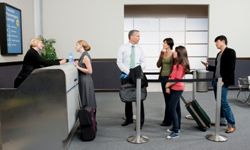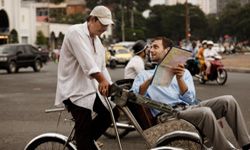Traveling the world tops many people's wish lists. It's one of those dreamy declarations that frequently follow the statement, "If I won the lottery…"
Despite tough economic times and post-9/11 fears of flying, millions of Americans travel abroad each year. Although the staple destinations -- London, Paris and Rome -- are still popular, more exotic locales have become more fashionable in recent years [source: CDC].
Advertisement
Vacationing abroad should be all about having fun and experiencing a new culture, but there are also safety issues to consider. Tourists can get into a lot of trouble in an unfamiliar place, from catching a disease, to having a run-in with some unfriendly locals, to getting hit by a car when they're looking the wrong way (particularly in countries where residents drive on the left, like Great Britain). Each year, more than 6,000 Americans die while traveling internationally [source: U.S. Department of State].
You can reduce your chances of getting into a dangerous mishap by taking a few precautions before you leave, and while you're away. This article covers five of the most basic -- and most important -- ways to stay safe when you travel.


